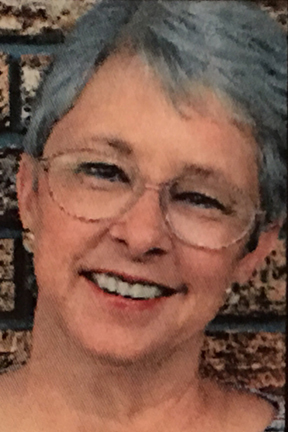Unashamed • Luke 9:18-27
By Ann Maniscalco

There’s a story of an adoring fan congratulating a famous violinist after an awe-inspiring concert. The admirer vigorously shook the musician’s hand and gushed, “That was incredible! I’d give my life to be able to play like that!” The musician, clutching his beloved instrument to his breast, looked the man in the eye and simply stated, “I have.”
Over the centuries, history has presented us with many inspiring stories of men and women who’ve committed their lives to a goal – an over-arching passion – addressing a noble task that has revolutionized lives to this day. Their commitments may have been in the fields of political leadership, social justice issues, medical breakthroughs, spiritual endeavors, or countless other ways. In the spiritual realm, we see the lordship of Jesus calls for similar focus and giving of self.
The Apostle Paul described this goal in Romans 12:1-2, where he calls us to surrender ourselves as a “living sacrifice,” being inwardly transformed to follow the “good and acceptable and perfect will of God” (NKJV). In Philippians 3, he expands on his personal application. Vowing to forget what was behind and reaching forward “to those things which are ahead,” he committed to “press toward the goal for the prize of the upward call of God in Christ Jesus” (vv. 13-14).
In Luke 9:1-9, the author describes Jesus sending out the Twelve, empowering them to “preach the kingdom of God and to heal the sick. Verses 10-17 portray the Lord’s amazing feeding of the multitude. As today’s focal lesson commences, we see Jesus alone and praying. When His apostles joined Him, the Lord asked them, “Who do the crowds say that I am?” Various incorrect responses were offered. Pointedly, Jesus then asked, “But who do you say that I am?” Peter answered, “The Christ of God.”
With this correct view established, the Lord for the first time began to explain what was involved in this identity. He would suffer and die and be raised to life again (v. 22). In Matthew’s account of this, we see Peter, upon hearing this, rebuking the Lord. Jesus quickly corrected him (Matthew 16:21-23). The apostles still didn’t totally comprehend their Master’s mission. In Luke 9:43-44, we see Jesus reiterating this and the Twelve still not understanding.
Luke 9:23 is a familiar Scripture describing discipleship. We note the four-pronged thrust: 1) making the initial decision to embrace Christ; 2) denial of self-will; 3) taking up one’s cross daily; and 4) following. The salvation experience is the first step, one of being “crucified with Christ” (Galatians 2:20). Paul explains the self-denial aspect in 1 Corinthians 15:31, saying, “I die daily” (see also Romans 6:11).
For the “take up his cross daily” segment, many have a misunderstanding of the biblical application and think of it as a burden we must endure. However, Christian educator Lawrence O. Richards (1931-2016) explains it this way: “The Christian’s cross isn’t suffering… It is simply that, as Calvary’s cross was God’s will for Jesus, so our ‘cross’ is whatever God’s will for us is each day.”
The fourth step – following – involves fleshing out the other three. Scripture study will teach us aspects of this “follow-ship,” disciplines the Lord would have us emulate in our daily walk.
Verse 24 points to a crossroad. Each person has to decide whether he/she will “lose” (give up self-will) his/her life for Christ, or will reject His call in the desire to “save his life,” resulting in eternal loss. We are soberly called to weigh the options: “For what profit is it to a man if he gains the whole world, and is himself destroyed or lost?” (v. 25). The one who chooses the latter will face Christ’s rejection: “of him the Son of Man will be ashamed…” (v. 26).
Verse 27 seems puzzling. Various possible explanations of the phrase, “see the kingdom of God,” include the transfiguration experience (Luke 9:28-36), the witnesses of Jesus’ resurrection and ascension (1 Corinthians 15:3-8), or the coming and indwelling of the Spirit at Pentecost (Acts 2).
In Mark 1:15, Jesus proclaimed, “The time has come… The kingdom of God is near. Repent and believe the good news!” This announcement would seem to indicate the “kingdom” was imminent.
Christ calls us to follow Him unreservedly and unashamedly. Rick Warren, Southern Baptist author and pastor of multi-campus Saddleback Community Church in California, sums it up succinctly: “To fulfill your mission will require that you abandon your agenda and accept God’s agenda for your life… You hand God a blank sheet with your name signed at the bottom and tell him to fill in the details.”
Maniscalco is a member of Emmanuel Church, Ocean Springs.



